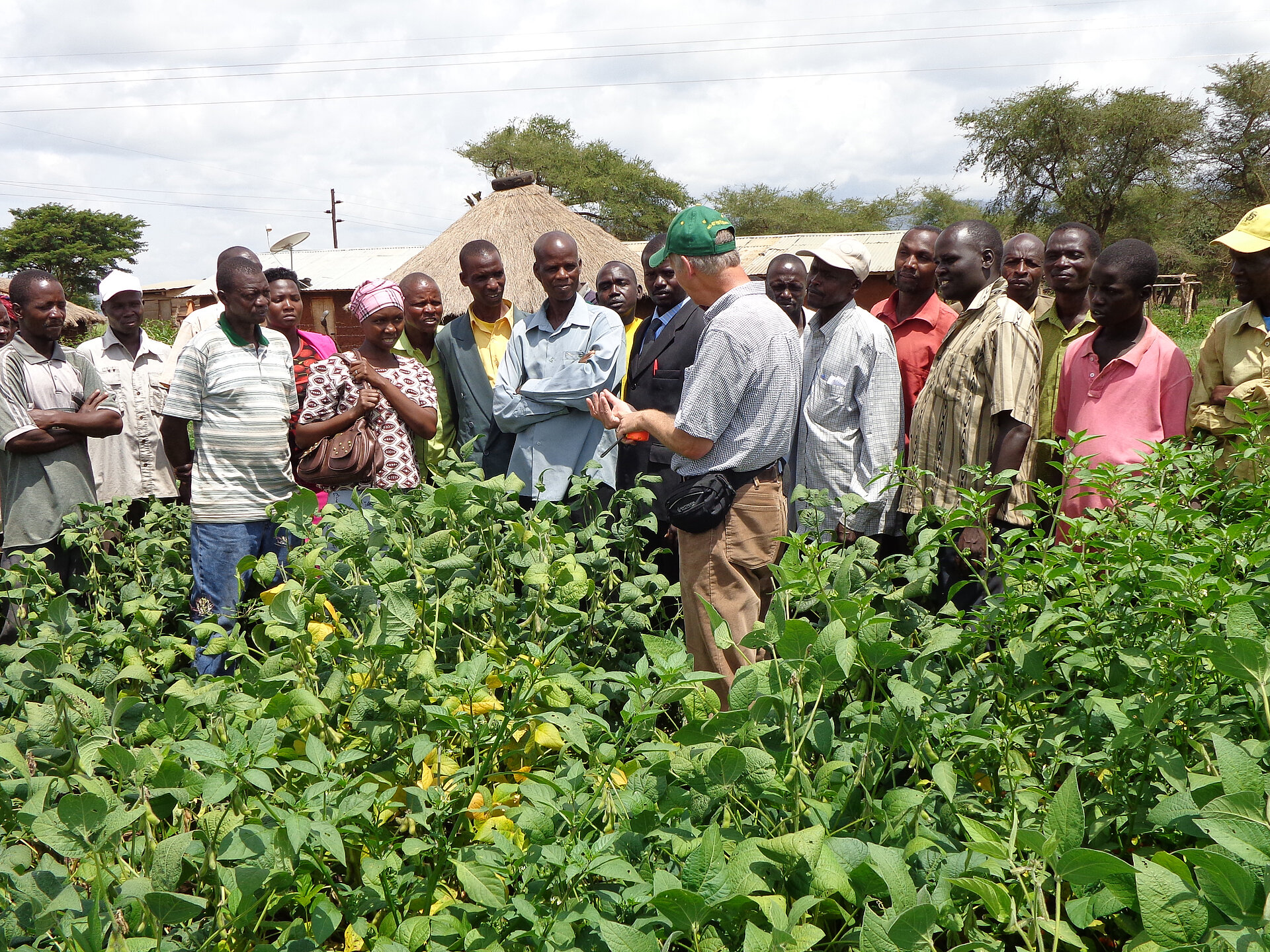
Hans Kandel, NDSU Extension Service agronomist, has returned from a two-week trip to Uganda, where he assisted a 6,000-member farm organization with soybean and sunflower production issues.
Kandel worked in Uganda with the Kapchorwa Commercial Farmers’ Association. The association is involved in growing corn, sorghum, barley and coffee but is looking to expand into soybean and sunflower oil seed crops.
Kandel was asked to evaluate the most appropriate regions for the production of the oil seed crops and to teach Ugandan Extension staff and farmers about the production issues of the two crops. The slopes of Mount Elgon offer unique ecozones, with small grains grown at the highest elevation and other crops in the more tropical lower elevations.
Kandel provided training for 30 Extension staff and 80 producers. Farming in Uganda is mostly at the subsistence level, with a typical farm being three to five acres. Kandel noted yields in some fields could be improved by simple measures, such as proper seed distribution, timely weeding and the inoculation of the soybeans with the proper rhizobia bacteria species. Even with small changes, yields could be improved by 10 to 15 percent.
Kapchorwa Commercial Farmers’ Association helps its members bulk their produce for collective marketing to provide the farmers with better positioning in price negotiations and economies of scale, such as reduced transportation costs. The association also has a training component, as some staff members are dedicated to educating producers about production and postharvest crop handling.
Kandel’s trip was sponsored by the U.S. Agency for International Development and coordinated by the Citizens Network for Foreign Affairs, a Washington-based nongovernmental agency with offices in East Africa.
NDSU is recognized as one of the nation’s top 108 public and private universities by the Carnegie Commission on Higher Education.